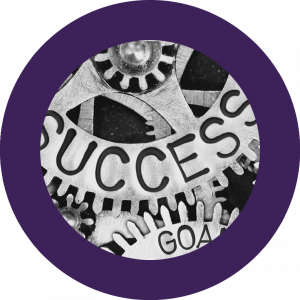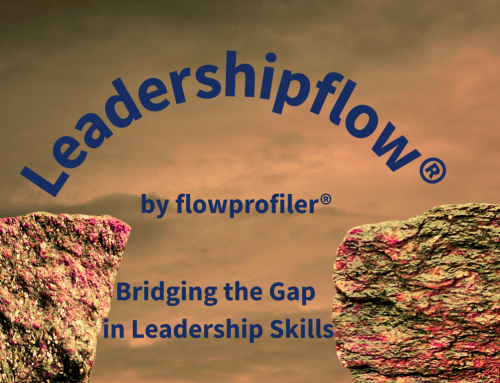 Emotional intelligence (EI) refers to the ability to recognise, understand, and manage our own emotions and the emotions of others. In the workplace, EI can have a significant impact on workplace culture, including how people interact with each other, the quality of relationships, and overall productivity.
Emotional intelligence (EI) refers to the ability to recognise, understand, and manage our own emotions and the emotions of others. In the workplace, EI can have a significant impact on workplace culture, including how people interact with each other, the quality of relationships, and overall productivity.
Improved Communication
Effective communication is crucial in the workplace, and emotional intelligence plays a crucial role in it. Individuals with high EI are better able to communicate their thoughts and feelings clearly, listen actively to others, and respond appropriately. They can also pick up on non-verbal cues and understand the emotions underlying what people are saying. As a result, teams with high EI are more likely to communicate effectively, leading to improved relationships, greater collaboration, and increased productivity.
Increased Empathy
Empathy is a key component of emotional intelligence and refers to the ability to understand and share the feelings of others. In the workplace, empathy can be a powerful tool for building strong relationships and fostering a positive culture. When individuals are able to put themselves in the shoes of their colleagues and understand their perspectives, they are more likely to collaborate effectively and build strong, trusting relationships.
Better Conflict Resolution
Conflict is a natural part of any workplace, but individuals with high EI are better equipped to manage conflicts effectively. They can remain calm and composed during conflicts, listen actively to all sides, and find solutions that meet everyone’s needs. This helps to prevent conflicts from escalating and fosters a culture of respect and collaboration.
Improved Leadership
Emotional intelligence is also a key trait of effective leaders. Leaders with high EI can inspire and motivate their teams, create a positive work environment, and foster strong relationships with their colleagues. They are also better able to manage stress and make sound decisions under pressure, leading to better outcomes for the organisation as a whole.
 Benefits of Cultivating Emotional Intelligence in the Workplace
Benefits of Cultivating Emotional Intelligence in the Workplace
4 benefits of cultivating EI in the workplace
1: Increased Employee Satisfaction and Retention
Cultivating emotional intelligence in the workplace can lead to increased employee satisfaction and retention. When employees feel that their emotions and perspectives are valued, they are more likely to feel engaged and committed to their work. This, in turn, can lead to lower turnover rates and improved morale.
2: Improved Productivity
Effective communication, empathy, and conflict resolution are all key components of emotional intelligence that can improve productivity in the workplace. When teams can communicate effectively and collaborate well, they are more likely to achieve their goals and meet their deadlines.
3: Reduced Workplace Stress
Emotional intelligence can also help to reduce workplace stress. When individuals can manage their own emotions and respond effectively to the emotions of others, they are less likely to feel overwhelmed or stressed. This can lead to a more positive work environment and improved mental health for all employees.
4: Enhanced Organisational Performance
Finally, cultivating emotional intelligence in the workplace can lead to enhanced organisational performance. Effective leaders with high EI can inspire and motivate their teams, create a positive work environment, and make sound decisions under pressure. This can lead to improved outcomes for the organisation as a whole.
How to Cultivate Emotional Intelligence in the Workplace
Cultivating emotional intelligence in the workplace requires a combination of training, practice, and organisational support. Some strategies for building emotional intelligence include:
- Providing training and development opportunities that focus on emotional intelligence, including workshops, coaching, and online courses. Encouraging open communication and active listening among employees.
- Creating a culture of respect and empathy, where employees feel valued and heard.
- Providing opportunities for feedback and reflection, so employees can learn from their experiences and develop their emotional intelligence.
- Modeling Emotional Intelligence Leaders in the organisation have a significant impact on workplace culture, and therefore, it is crucial for them to model emotional intelligence. They can do this by demonstrating empathy, active listening, and effective communication in their interactions with colleagues and employees. Leaders can also set expectations for emotional intelligence by incorporating it into job descriptions, performance evaluations, and company values.
 Providing Resources and Support
Providing Resources and Support
Organisational support is also essential for cultivating emotional intelligence in the workplace. Providing resources such as coaching, mentoring, and counselling can help employees develop their emotional intelligence skills. Additionally, creating a supportive work environment that encourages open communication, collaboration, and teamwork can help foster emotional intelligence and create a positive workplace culture.
Emotional intelligence plays a critical role in workplace culture, improving communication, empathy, conflict resolution, and leadership. Cultivating emotional intelligence in the workplace can lead to increased employee satisfaction and retention, improved productivity, reduced workplace stress, and enhanced organisational performance. By providing training and support, modelling emotional intelligence, and creating a supportive work environment, organisations can cultivate emotional intelligence and create a positive workplace culture that benefits everyone.
Please reach out to us at hello@flowprofiler.com if you are interested in learning how EI can positively impact your workplace culture!
References:
- Goleman, D. (2001). Emotional Intelligence: Why It Can Matter More Than IQ. Bantam Books.
- Mayer, J. D., & Salovey, P. (1997). What is emotional intelligence? In P. Salovey & D. Sluyter (Eds.), Emotional Development and Emotional Intelligence: Implications for Educators (pp. 3-31). Basic Books.
- Boyatzis, R. E. (2009). Competencies as a behavioral approach to emotional intelligence. Journal of Management Development, 28(9), 749-770.
- San Martín, A., & Delgado, M. A. (2018). Emotional intelligence and its relationship with team processes and task performance in innovative projects. European Journal of Work and Organizational Psychology, 27(3), 346-356.
- Jordan, P. J., Ashkanasy, N. M., Härtel, C. E. J., & Hooper, G. S. (2002). Workgroup emotional intelligence: Scale development and relationship to team process effectiveness and goal focus. Human Resource Management Review, 12(2), 195-214.
- Cherniss, C., & Adler, M. (2000). Promoting emotional intelligence in organizations. Alexandria, VA: ASTD Press.
- Lopes, P. N., Grewal, D., Kadis, J., Gall, M., & Salovey, P. (2006). Evidence that emotional intelligence is related to job performance and affect and attitudes at work. Psicothema, 18(suppl), 132-138.
- Akerjordet, K., & Severinsson, E. (2007). Emotional intelligence: A review of the literature with specific focus on empirical and epistemological perspectives. Journal of Clinical Nursing, 16(8), 1405-1416.
- Higgs, M., & Dulewicz, V. (2016). Developing emotional intelligence for healthcare leadership. Journal of Health Organization and Management, 30(1), 135-151.
- Goleman, D. (1998). What makes a leader? Harvard Business Review, 76(6), 93-102.
- Wong, C. S., & Law, K. S. (2002). The effects of leader and follower emotional intelligence on performance and attitude: An exploratory study. The Leadership Quarterly, 13(3), 243-274.
- Petrides, K. V., & Furnham, A. (2006). The role of trait emotional intelligence in a gender-specific model of organizational variables. Journal of Applied Social Psychology, 36(2), 552-569.




